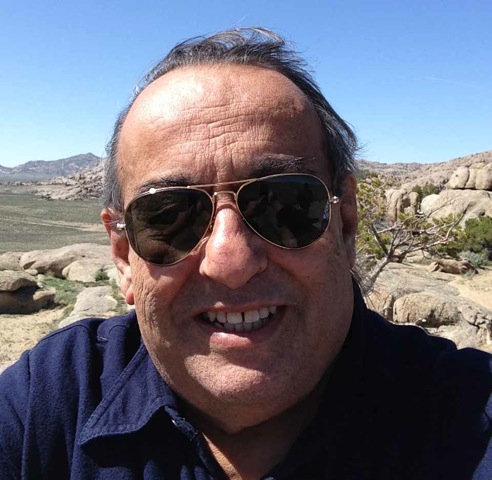Hank Herrera is President & CEO of the Center for Popular Research, Education & Policy (C-PREP), a non-profit community-based organization that conducts participatory research, education, and policy in low-income and vulnerable communities. A self-described “food justice freak,” Herrera co-founded Dig Deep Farms and Produce and assisted in research for the USDA-funded Food Dignity Project. He recently formed New Hope Farms, which links small farms with small corner stores to grow and sell healthy, sustainable, affordable, and local food.
What are some of the biggest problems with America’s food system today?
I suppose the quickest way to answer that is to say that the industrial food system that we have involves global supply chains and production systems that are harmful to the environment. It involves concentration of ownership of the means of production, which has made things very economically difficult for family and small farmers, has led to movement of people from rural to urban areas, and caused the loss of jobs. It also involves the production of highly processed foods that we see if we go into the supermarket and walk the so-called center aisles, which are filled with foods that are unhealthy for us — causing health problems such as type 2 diabetes, obesity, and cardiovascular disease. Additionally, the lack of price supports and supply management causes problems for farmers who overproduce and lose money… and the industrial food system basically involves market failure, because it systematically excludes low income communities and communities of color from access to healthy food.
What is food sovereignty and why is it important?
Food sovereignty is a concept that emerged in the late 1990s from a group called La Via Campesina, which advocates for the rights of peasant farmers. It involves the idea that a people, a culture, a community, should have the right to produce the food that the people in that community want to eat, and that they should have full ownership of the means of production and the exchange of that food. So it involves access to healthy food, and it involves ownership of the food system itself.
What connection is there between food sovereignty and environmentally sustainable agriculture?
I’ve seen the banners of organic agriculture, sustainable agriculture, regenerative agriculture; it’s a long parade! And yet, the basics of producing using low-input methods have been known for millennia. Traditional agriculture around the world has always been basically organic and sustainable and regenerative. But since World War II, all of those methods of producing and distributing food have been disrupted by what people call industrial agriculture, or corporate agribusiness. So, if we could go “back to the future” and return to those traditional methods of food production and exchange, where every locality sustained itself, we might have a chance. But as you know, we live in a money-driven social system, and it’s not a mistake that corporations acquire other corporations and concentrate ownership. Changing that system to make it more sustainable is like tweaking around the edges. That fight is going to go on, and the only way it’s going to change is if people stand up and say, “I don’t care, this is not good for us, and we need to change it.” But people aren’t willing to stand up to Monsanto, because that’s the way the modern world works, and the corporations know that and benefit from it.
